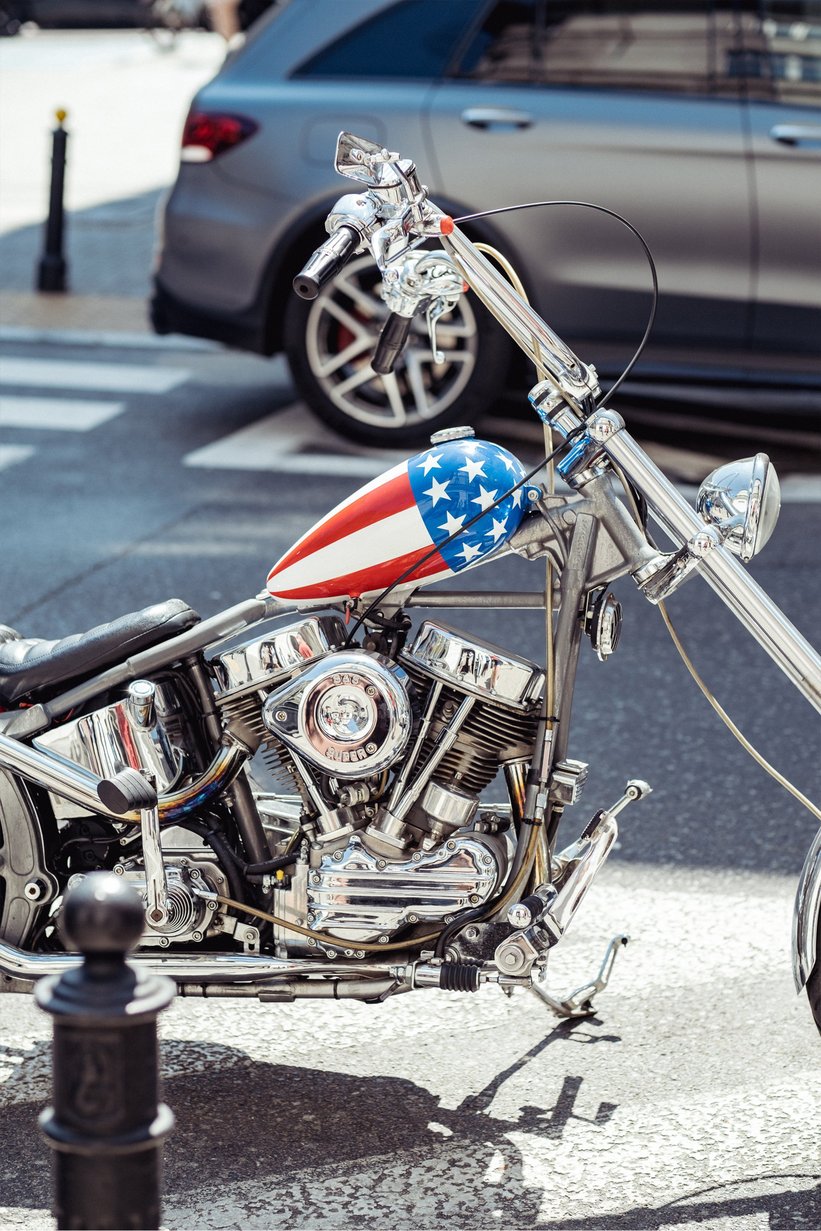
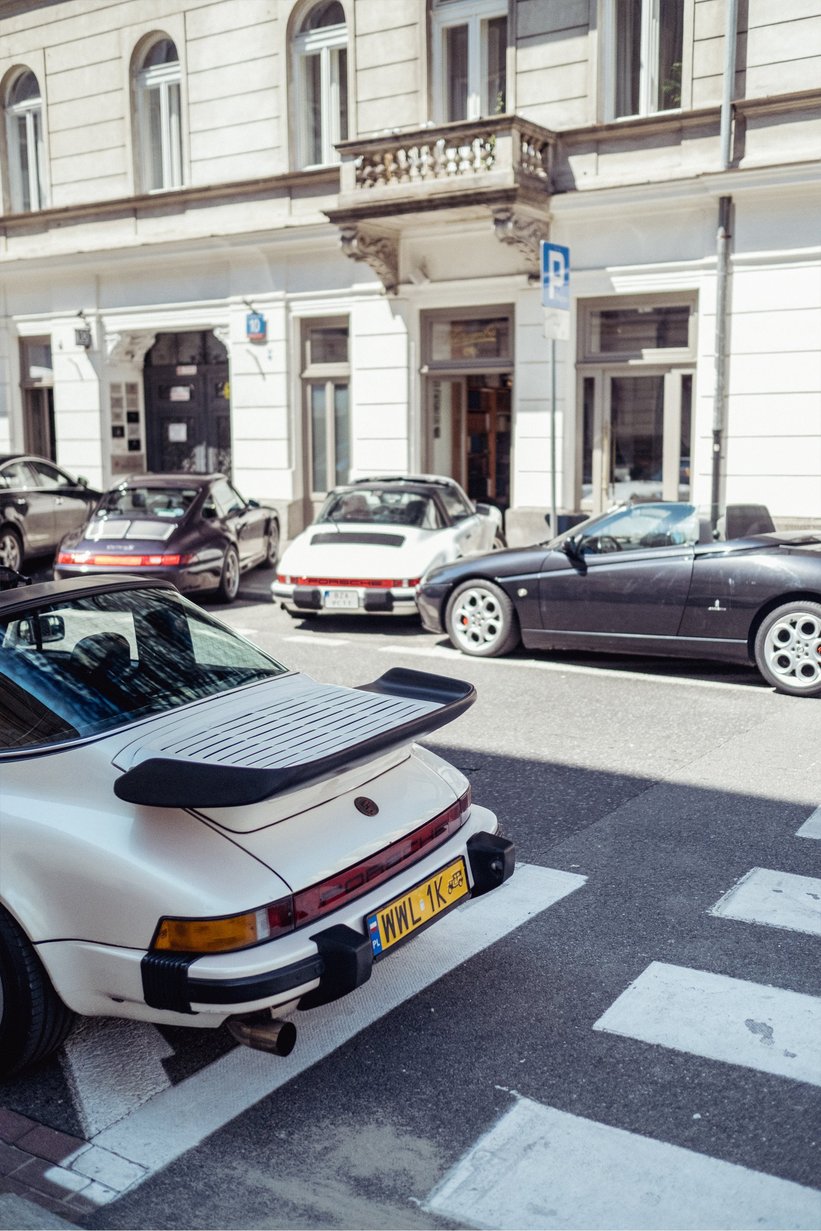
Three Porsches, an Alfa Romeo, a Mazda Mx-5, and a replica of Peter Fonda’s chopper from “Easy Rider”, all parked underneath a late XVIII century townhouse in central Warsaw. A building, which like most of the town’s infrastructure, must’ve been heavily bombed and burned during World War II (houses that withstood the bombings were finished-off by hand, using flamethrowers). It makes sense that its ornamental, architectural details are only visible on the ground and first floors, as the communists who took power after the conflict had ended weren’t keen on properly rebuilding what once was. Trying to depreciate the symbols of a once prosperous and very much capitalist city, they simplified facades and sometimes, on purpose, lowered buildings a few stories in a propaganda bid to make them appear less impressive to the uneducated, surviving masses that would later form Poland’s communist elites.
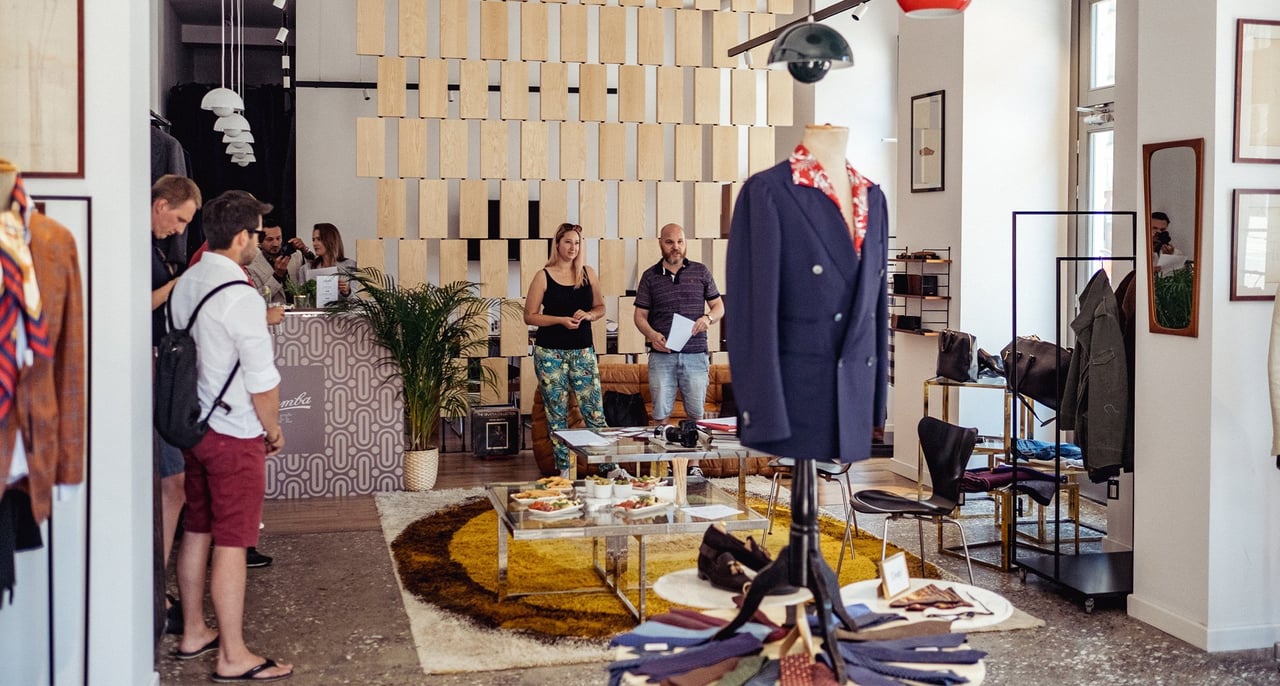
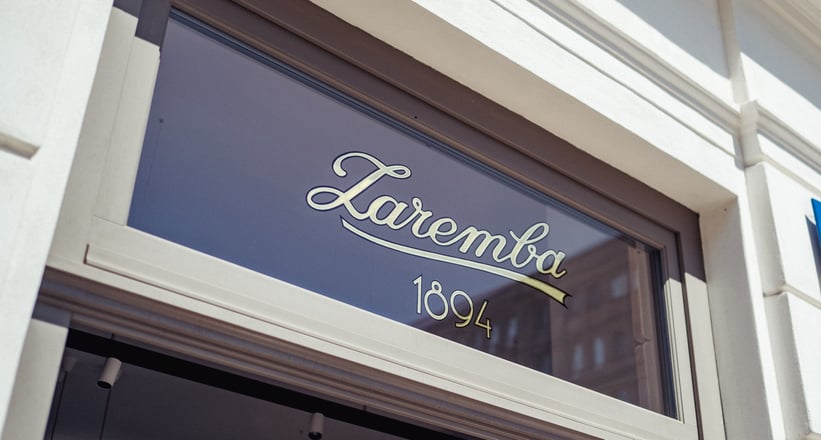

‘This is important to understand’. I think to myself while walking through the door of Maciej Zaremba’s Warsaw atelier located on the corner of that particular townhouse. In Poland, the normal functioning of things – restaurants, cafes, shops and yes, also tailors – was severed abruptly with that systemic change of 1945, which lasted until 1990, and the consequences of which the country still feels to this day. It is therefore short of a miracle that a business specializing in bespoke tailoring – what an extravagance! – would be able to function under the communist regime, bringing the total of its operations to an uninterrupted 127 years.
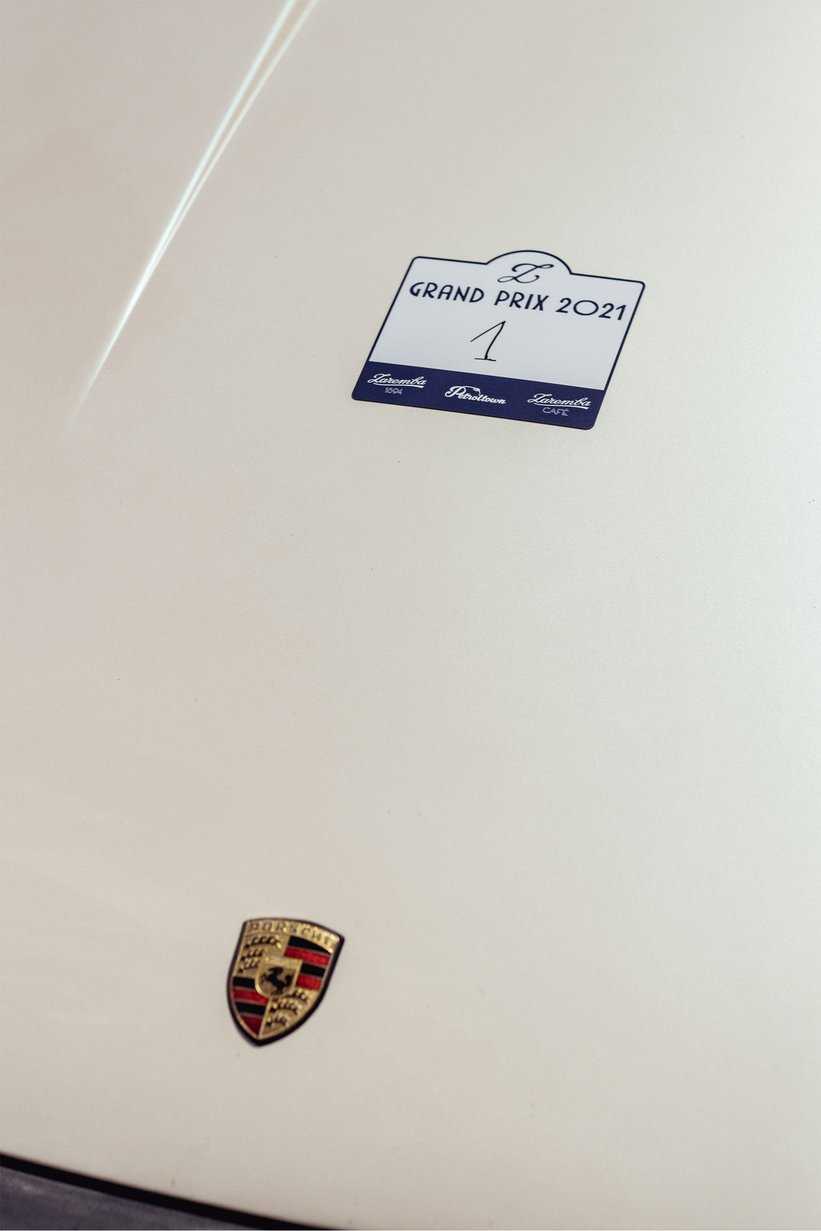
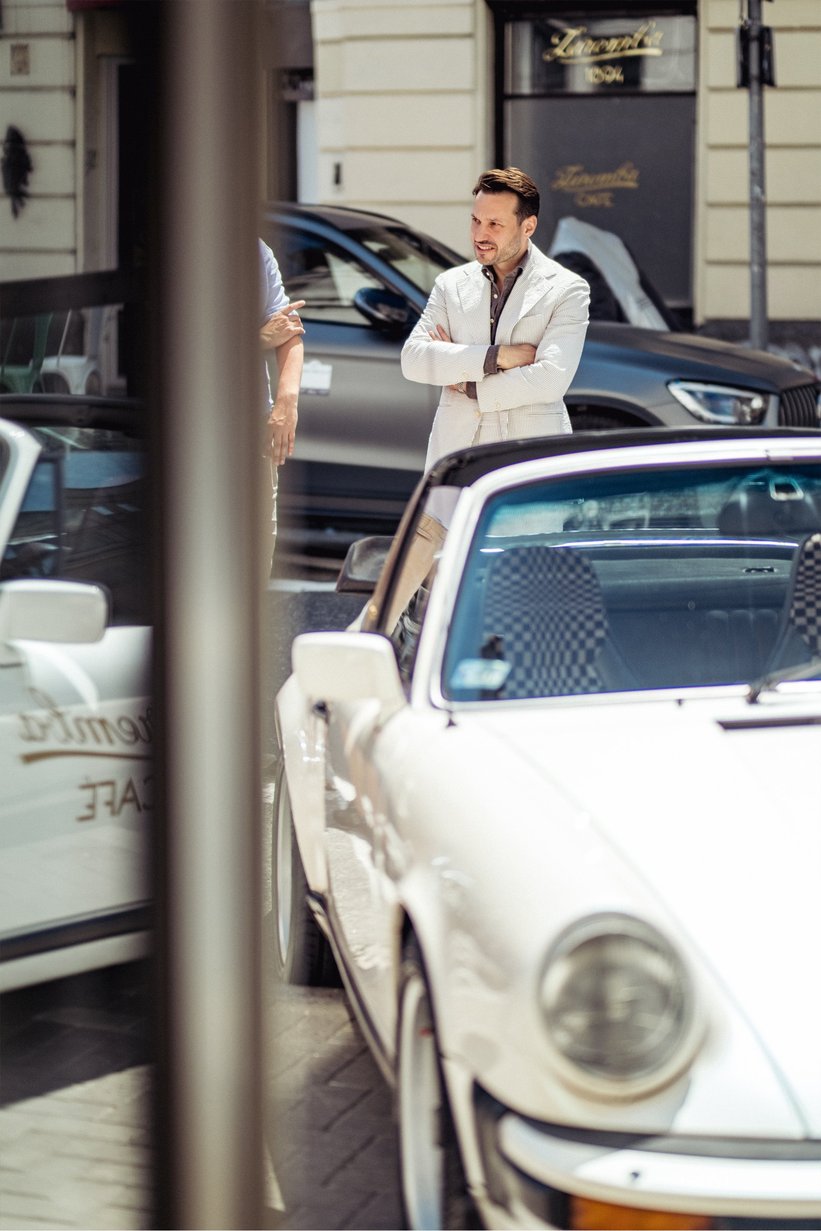
It’s a Sunday and usually the shop would be closed, but not today. Maciej, who had a semi-professional rallying career before he resigned from it, is a keen petrolhead and has organized a small car-related treasure hunt around the city to promote his new space. Located right across the street from the old atelier, the one in which his father and grandfather worked, it’s where he will soon open a Milanese-style cafe.
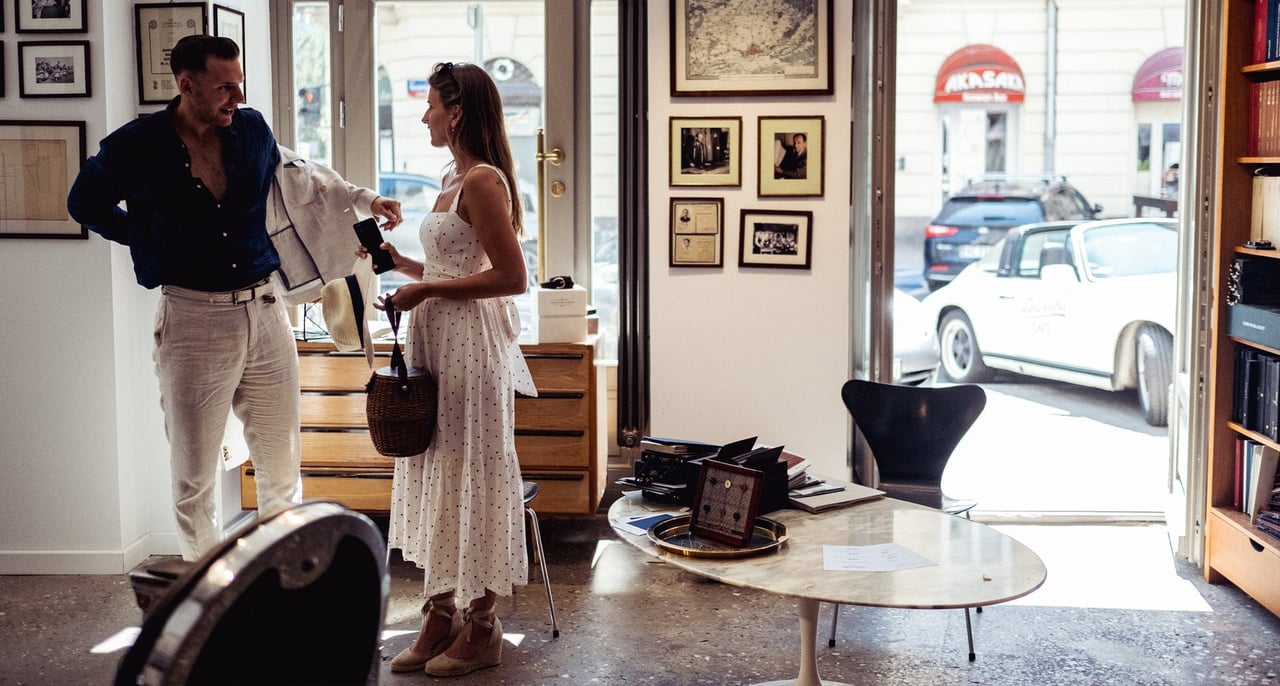
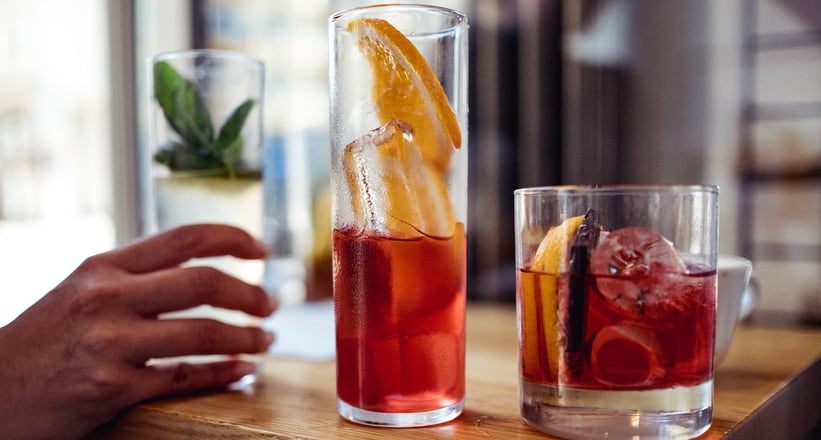
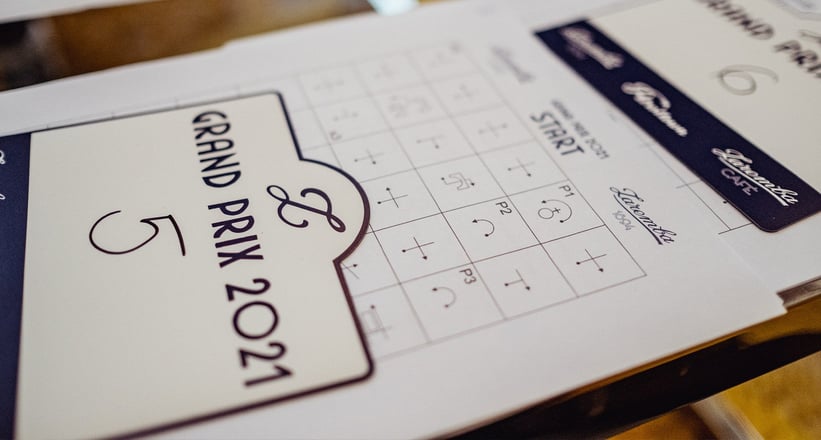
While roadbooks and cold brew coffees are being distributed, we are properly introduced to each other for the first time. I admire his white, seersucker suit in which – when surrounded by clients in the mid-day sun – he looks like a character from “The Godfather II”. Through my research I’ve learned that in his father’s and grandfather’s day, although stuck behind the iron curtain, the company had the ambition to compete with Saville Row’s best. Today, Italy’s direction is clearly taken – with leading taylors like Domenico Saraceni and Rubinacci as benchmarks.
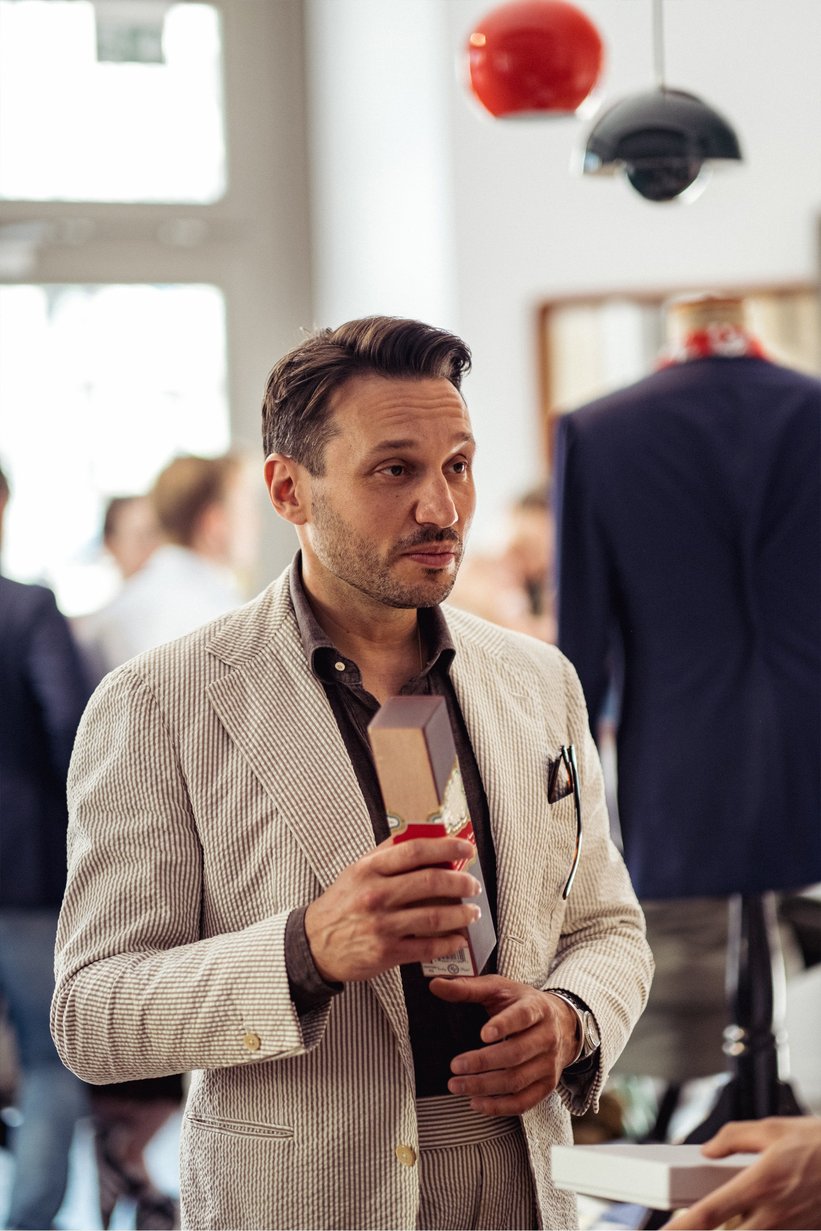
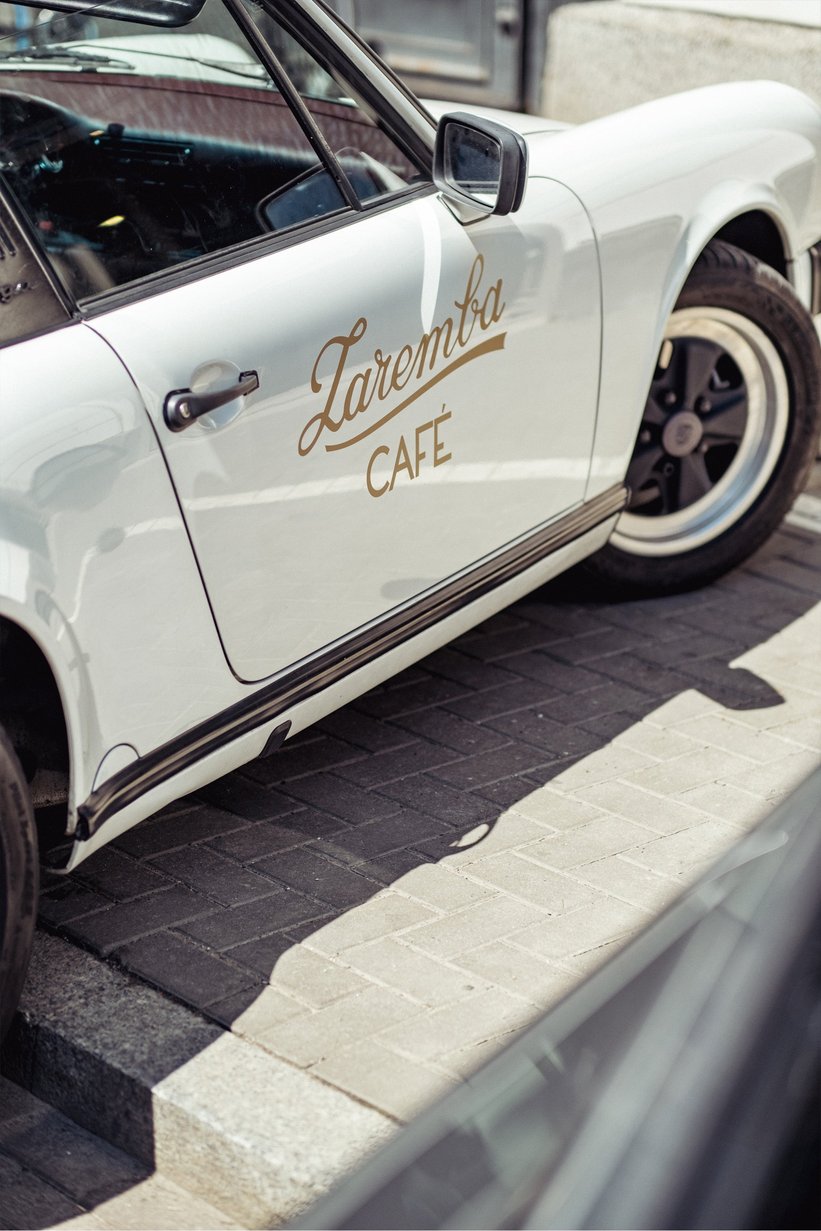
The place is bustling with life and, even if the car turnout isn’t particularly impressive, the event seems to be a success. As all attendees want Maciej’s attention – probably hoping they can advance in line and get their suit earlier than others – we schedule another appointment to talk more freely and take photographs in peace. ‘Swing by next week’, he says. ‘We’ll also take some measurements and make you a pair of trousers, so that you’ll be able to experience first-hand what the Zaremba brand and quality of tailoring are all about’.
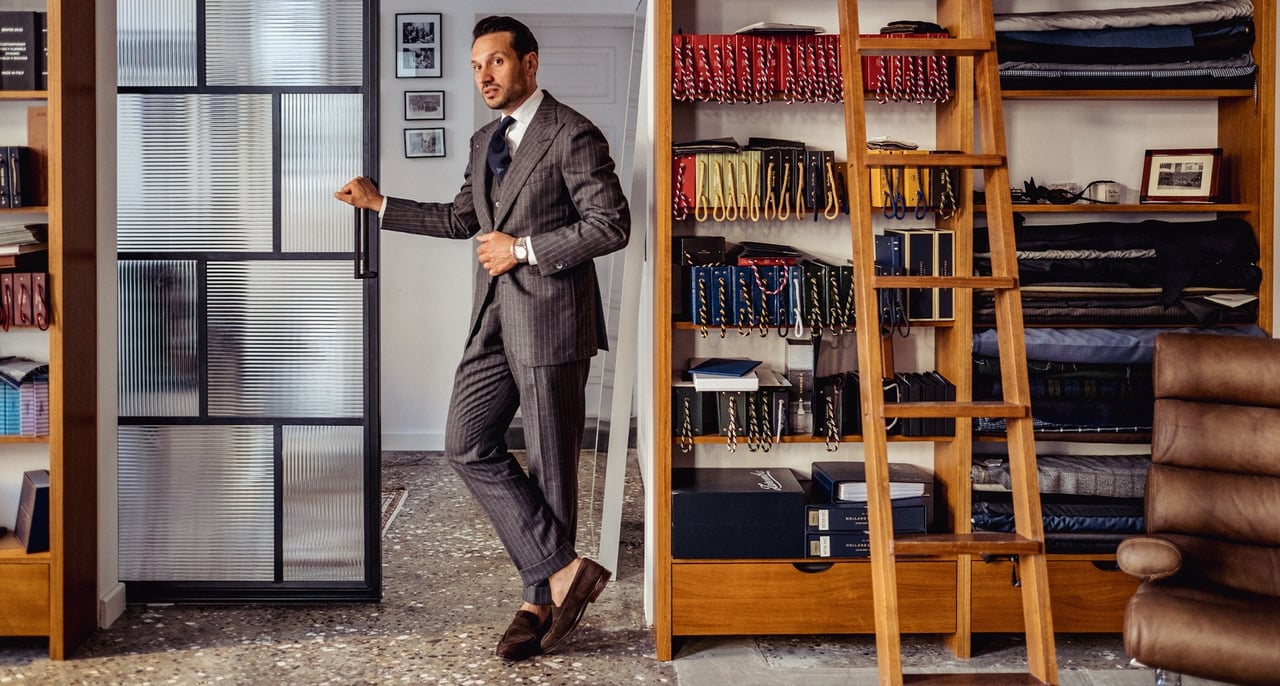
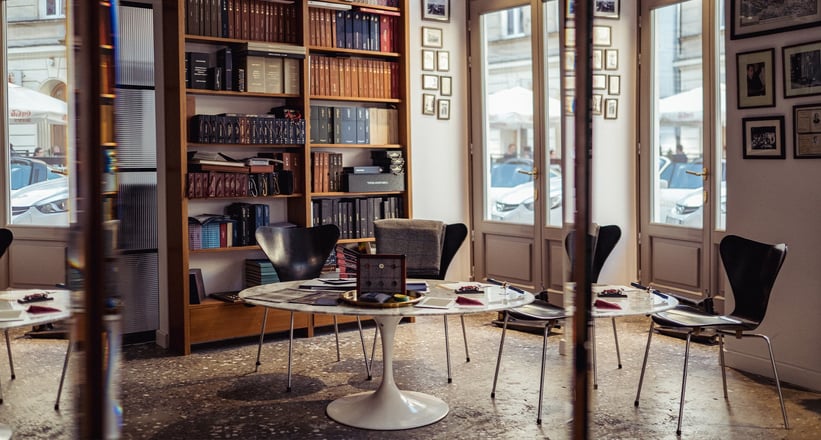
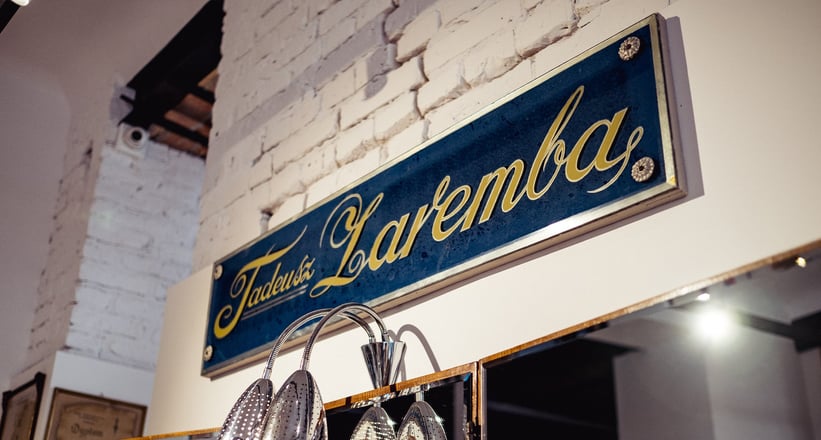
A few days later I’m back. Maciej looking dapper as usual, wearing a three-piece pinstriped ensemble, gives me a tour of the shop. ‘When we were operating next door, the tailors and seamstresses were working in a flat located five blocks down from where we are now’, he says. ‘That’s why I decided to make a push for this much bigger space, so that fittings are no longer such a logistical nightmare’. We sit down to pick out the fabric for my new trousers, the first tailor-made piece of clothing I’ll own, which might come as a shock to some of my friends, who think that as a snob I probably have never set foot inside a TK Maxx. Wrong.
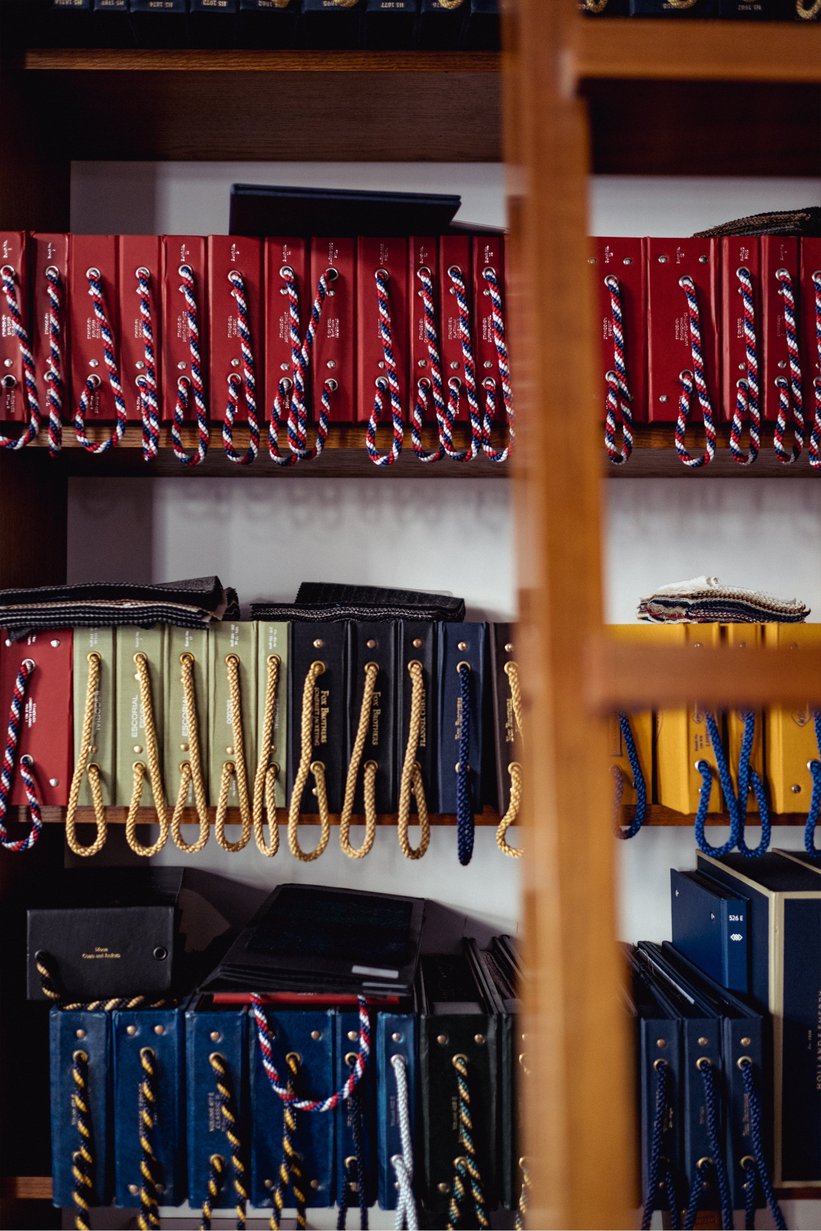
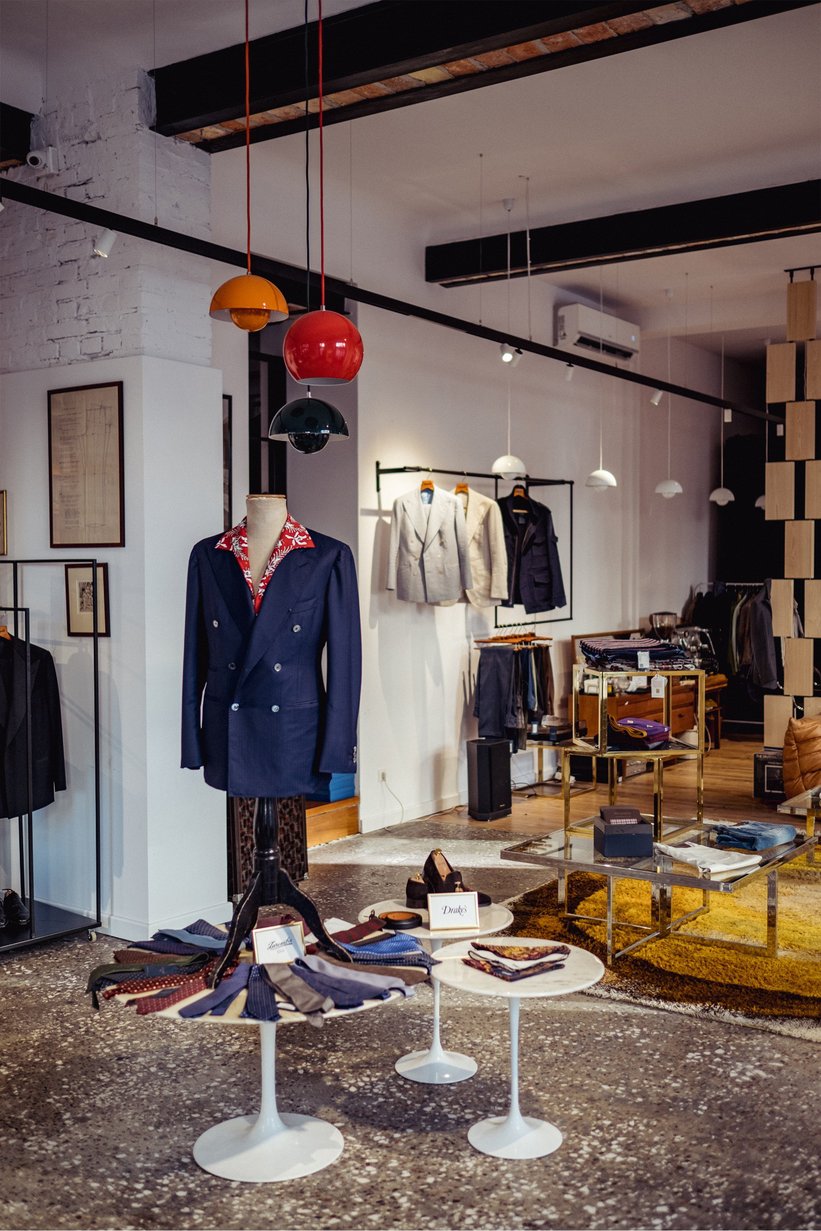
Having been put in front of an entire wall of samples I panic slightly, but Maciej’s vision of my personal style is so clear that we quickly decide which fabric will work best with what I own, and what I’m going to use the trousers for. His grandfather’s motto apparently was “not only do we cut a suit to match an individual’s shape, but also his goals”. A model of a 037 Lancia rally car sitting on one of the shelves next to a replica of Maciej’s old, heavily modified Subaru Impreza 22b car, makes me slightly more at ease. A slender - as one would expect - and precisely moving man with a slightly absent gaze comes out from the back office to take my measurements. We briefly discuss cuffs and pocket shapes and then it’s onto cars. Clothing aside, Maciej’s favorite subject.
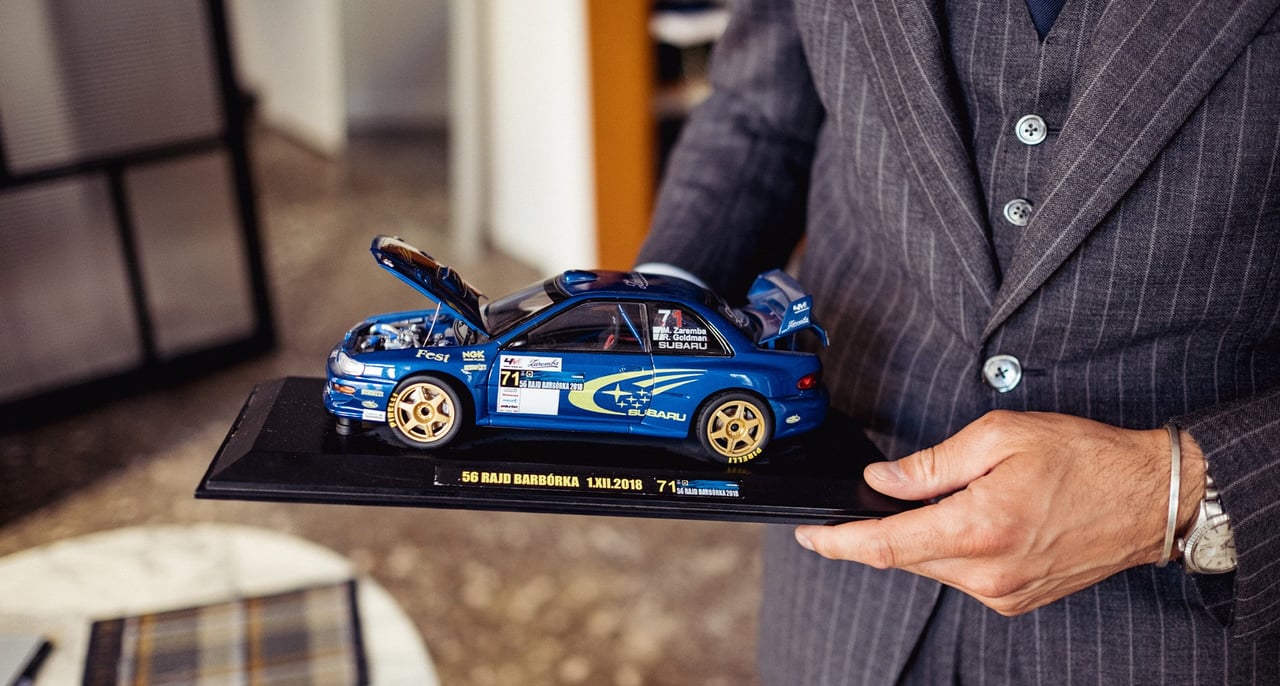
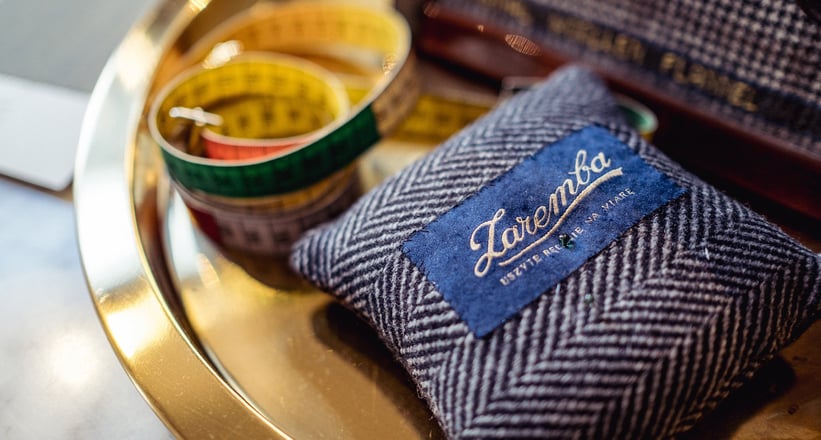
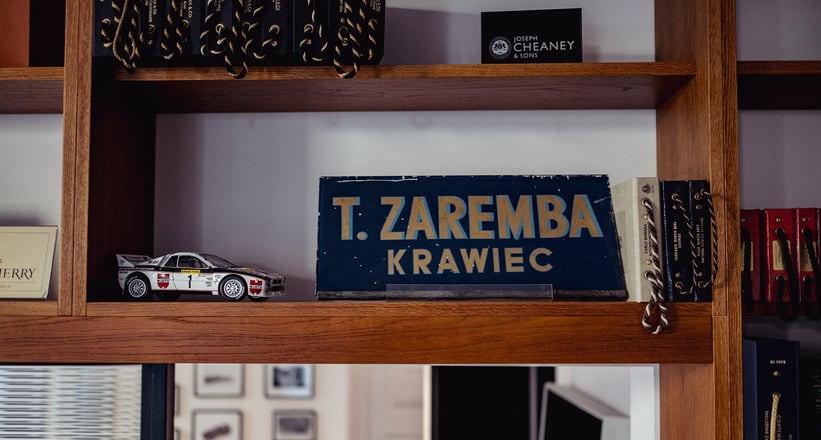
The Zaremba brand has been established by his great-grandfather, Edward, and his cousin, Adolf, in 1894, when Warsaw was still under the rule of Tzarist Russia (due to division of Poland between Austria, Prussia and Russia that lasted for 120 years). Then, in 1933 – in a briefly independent Poland – Maciej’s Grandfather, Tadeusz took over. His name ‘Zaremba 1894’ is present on the labels until this day. At first his son, Maciej’s father Adam, didn’t want to have anything to do with the family business. He studied to become an engineer and for years ran a successful company that designed and installed ventilation systems for big buildings. Not everyone knew, though, that while studying on the Polytechnic he was also simultaneously learning how to be a tailor, and that in fact he had cut his first jacket even before he became a student.

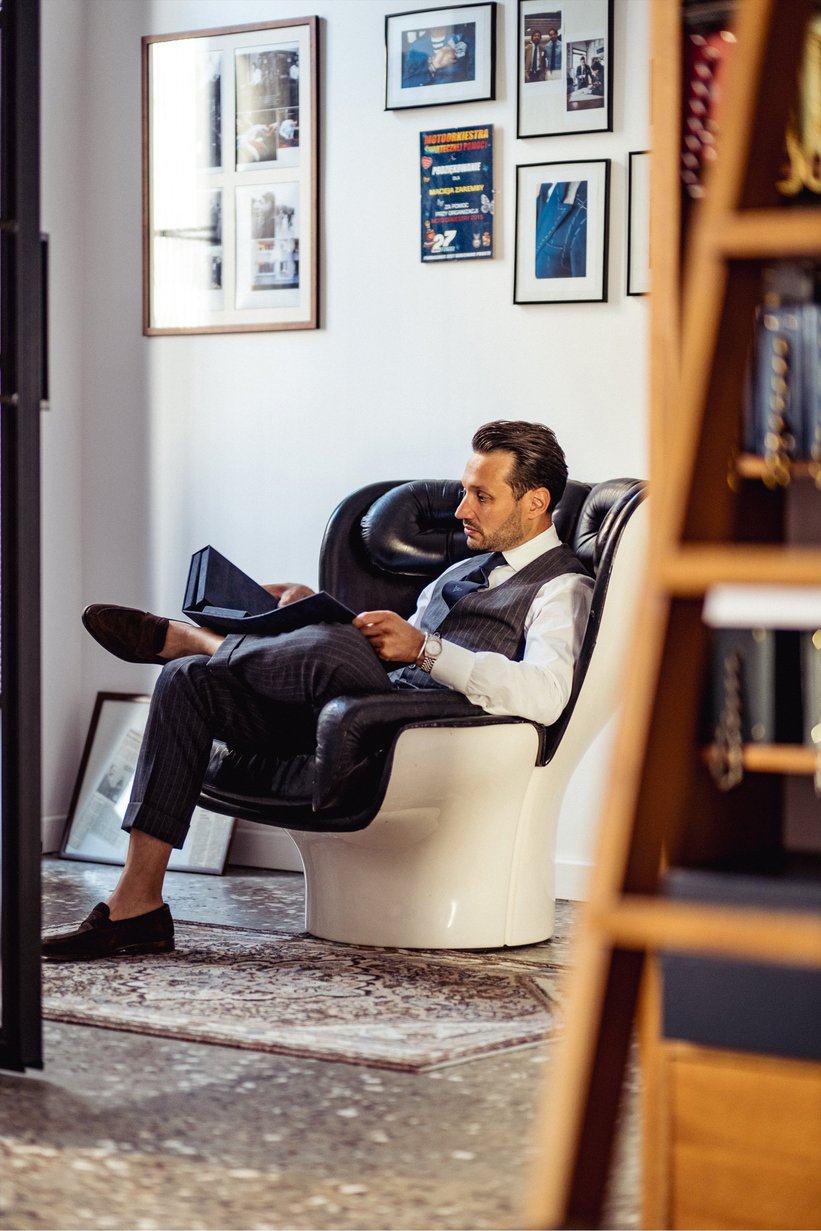
When the time came, he joined Tadeusz and became the co-owner of the shop in 1976, later to becoming the sole owner when his father passed in 1998. “Cars were also always present in my family’s history”, says Maciej. “Apart from being an amazing engineer and tailor, my father was also an avid car enthusiast and an amateur rally driver”. A very unlikely combination of interests. Especially taking into consideration that cars couldn’t be bought in those days - they were allocated. That meant waiting for years or, if one had access to any kind of foreign currency, cars could be procured on the grey-area second hand market. So only people who were well connected had access to any kind of competitive machinery (like the son of the communist party’s chairman - Andrzej Jaroszewicz), and I know that Maciej’s family wasn’t one to sympathize with the oppressor.

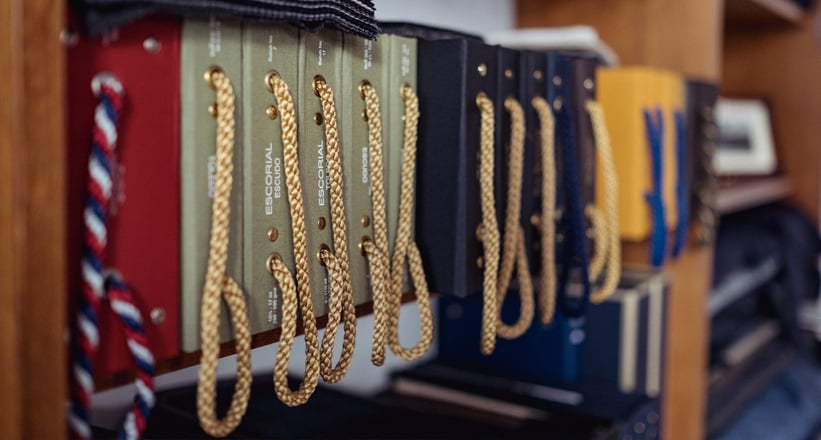
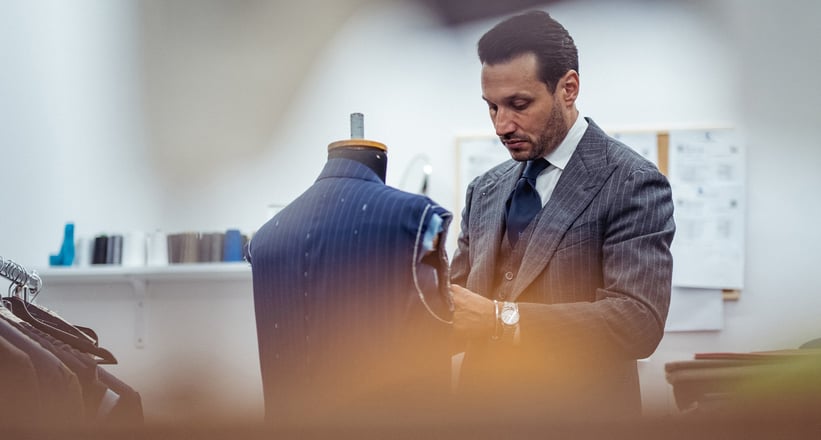
I ask him about the company’s survival under the communist regime. “Even though my Grandfather was quite an important figure, regularly appearing on TV – and in secret was tailor to some top party members and many celebrities – there wasn’t a week where we weren’t harassed by the secret police”, Maciej explains. “English and Italian wool were forbidden by the government and had to be bought on the black market. Can you imagine – that was the extent to which tailoring was seen as a bourgeois extravagance. In the old shop we used to have multiple secret storage places to hide these from the Police”, he adds with a little smile.
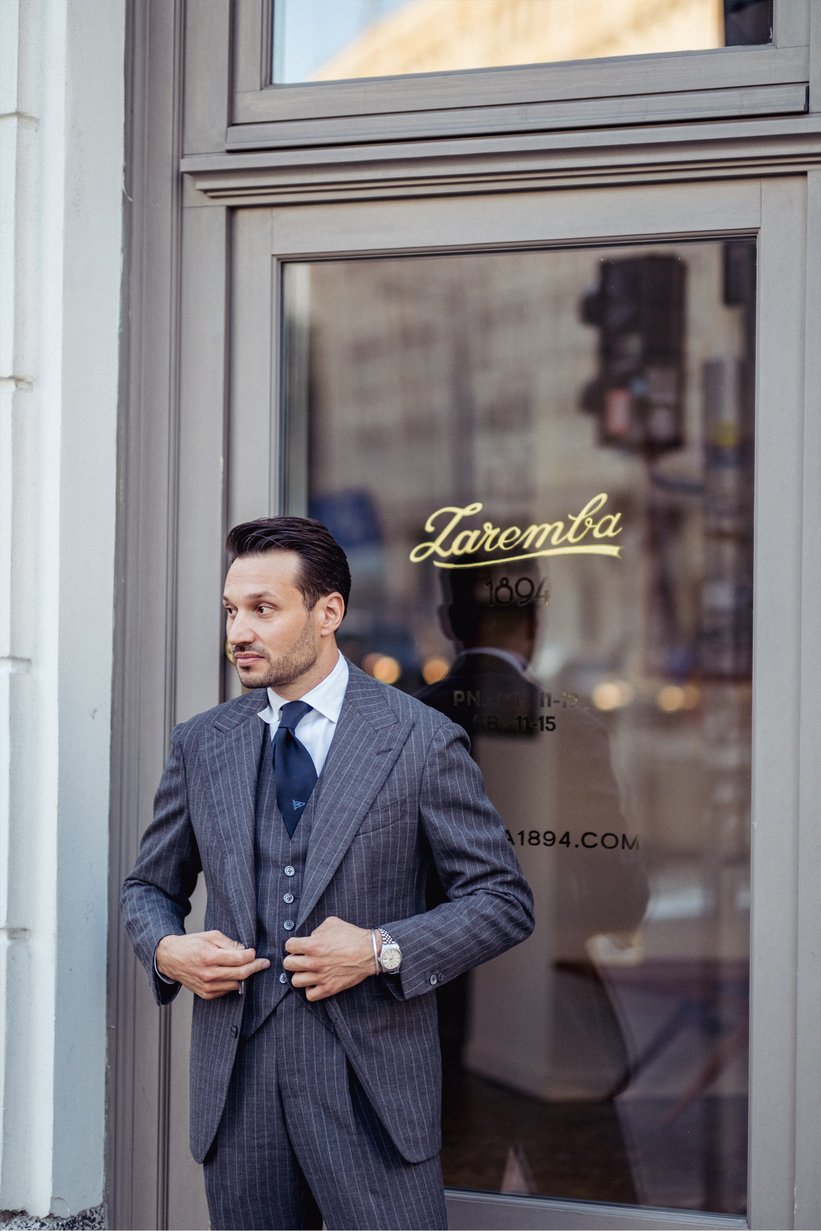
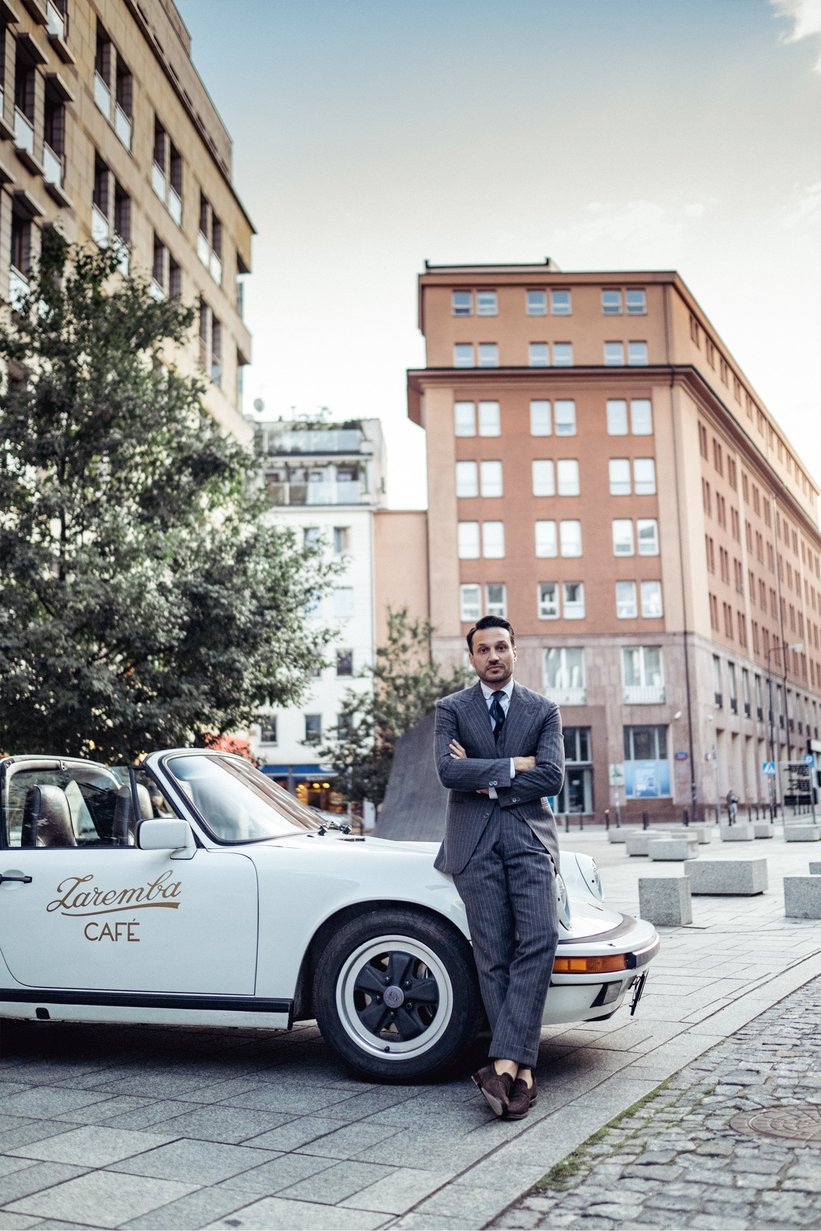
But what about him? Was taking over always on the menu? “Of course not”, he laughs. “I also went on to study at Warsaw’s Polytechnic. Back in the day, I was DJ’ing a lot and was fascinated by sound engineering, so I became a sound engineer”. Then, in 2005 his father passed, and seeing his mom struggle with running the business, the thought occurred that maybe he could give it a try. “I’ve always loved fashion, and as a kid had spent a lot of time with grandad and father, here, at work”, Maciej recalls. “Now, they were both gone, but some of their oldest employees remained, so I went and asked them to teach me”. From what I can see around me, the idea worked: currently there’s a minimum two to four months waiting list to get a suit with a Zaremba 1894 label.
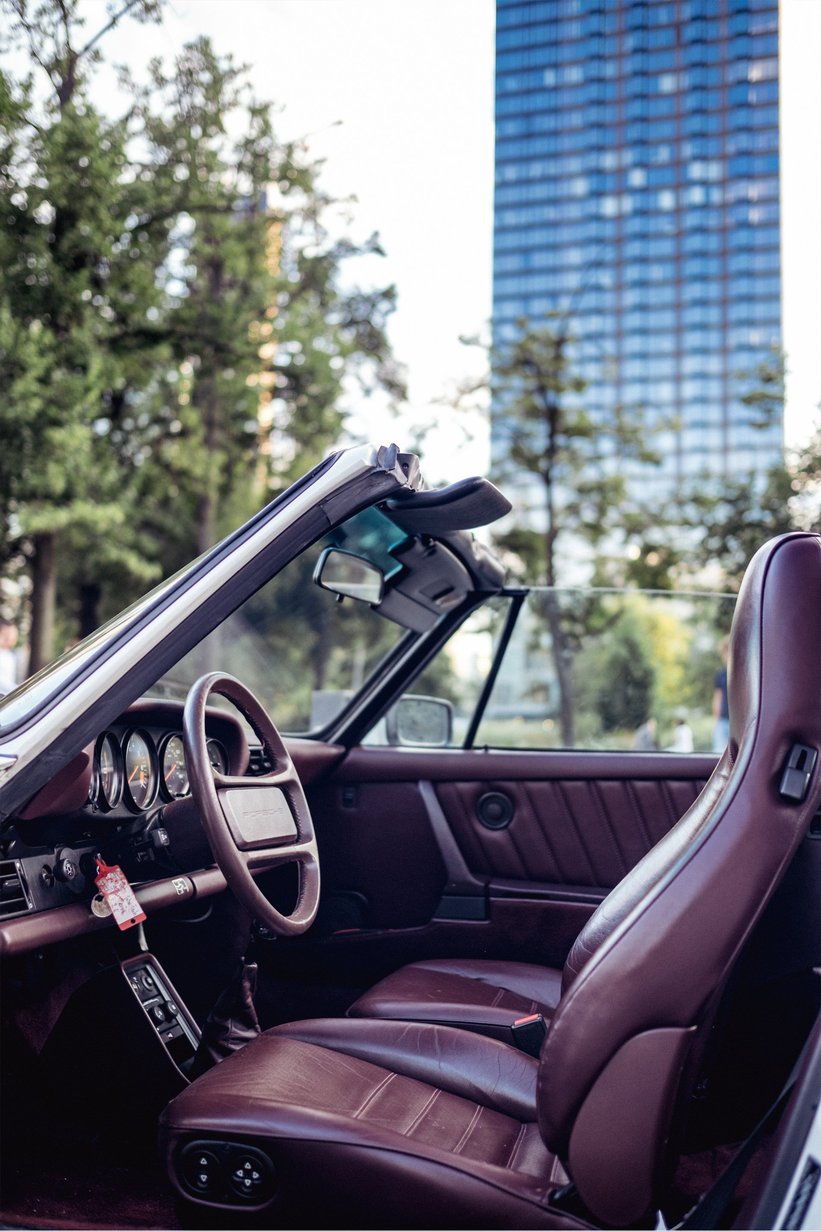
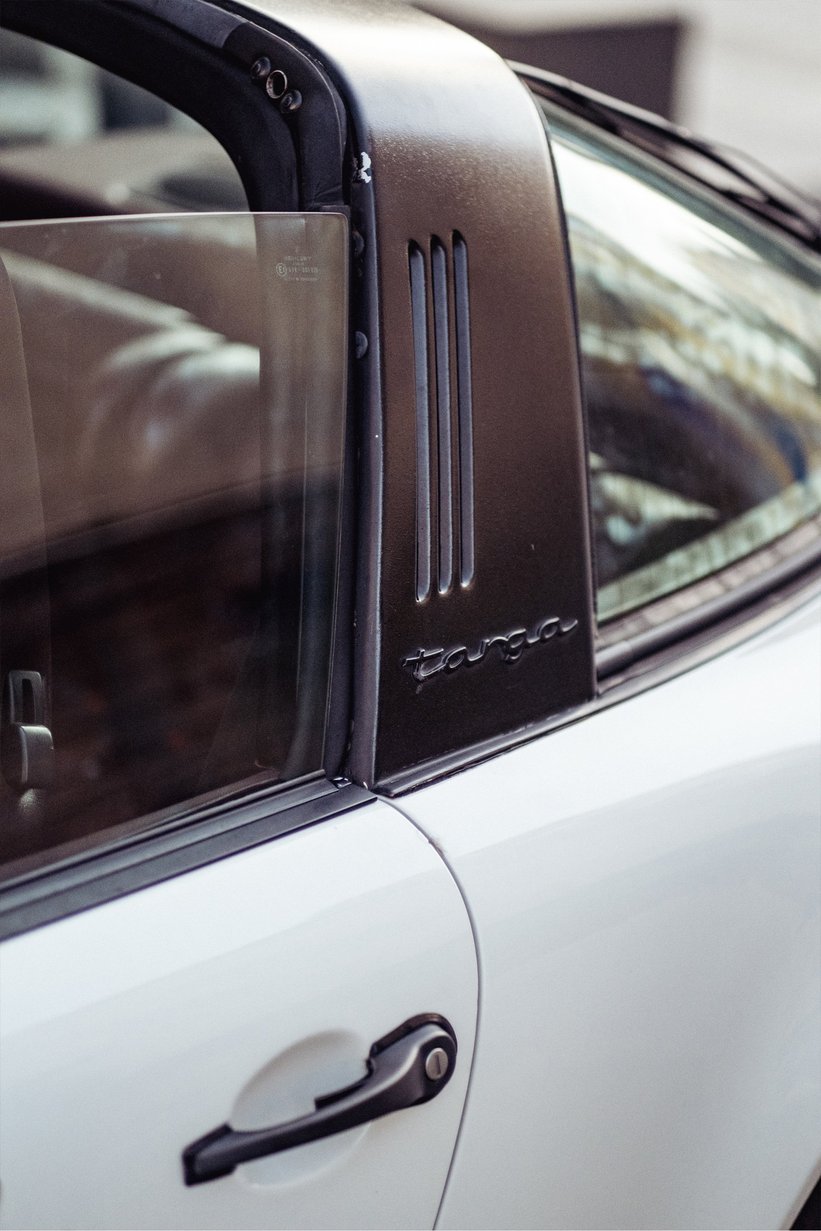
As it is getting late and most of the crew have gone, he closes up the shop and I hitch a ride in his company car, a G-model Porsche 911 Targa, which has been recently imported from the USA. “It still needs a lot of work, but drives well and is, in my view, a good symbol of what we stand for. Understated elegance, looking to the past as well as the future, but also an edge, which makes life interesting. I know Italian cars have more style and sprezzatura, but I can’t deal with their temperament”, he says.
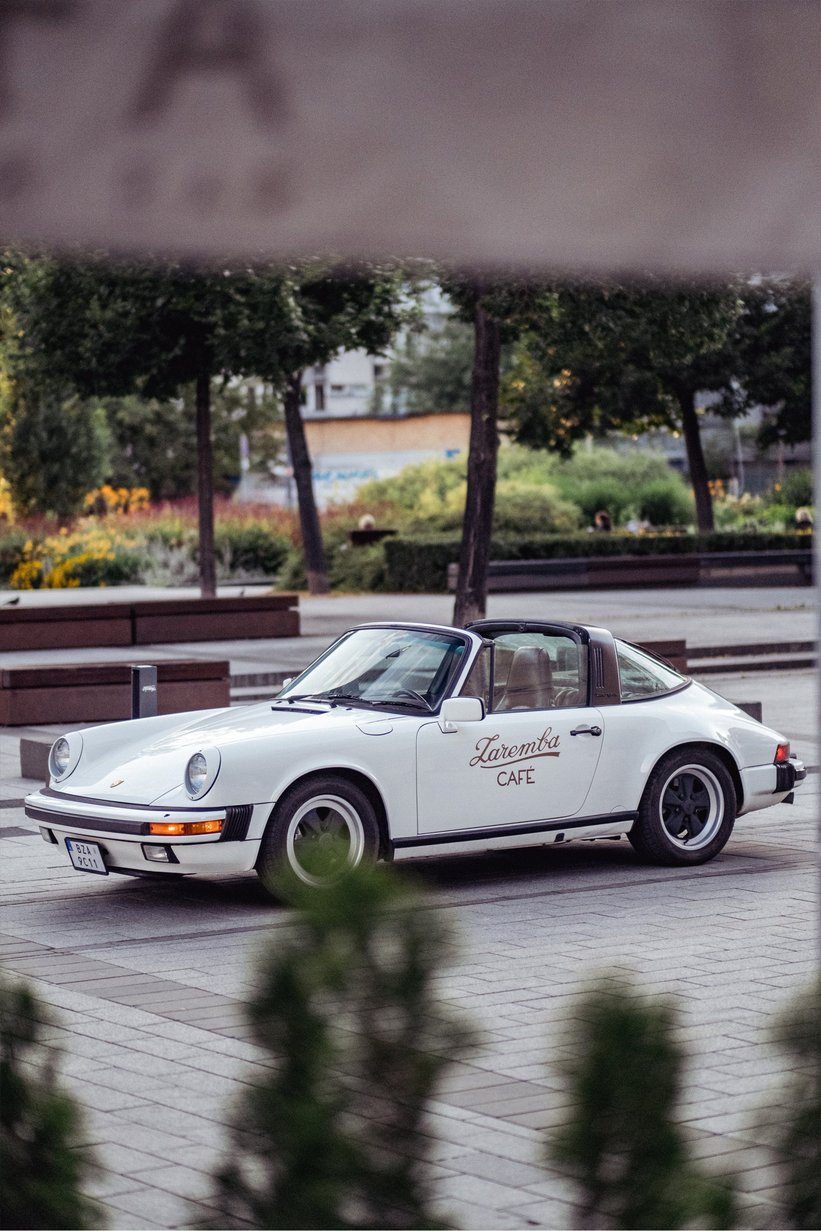
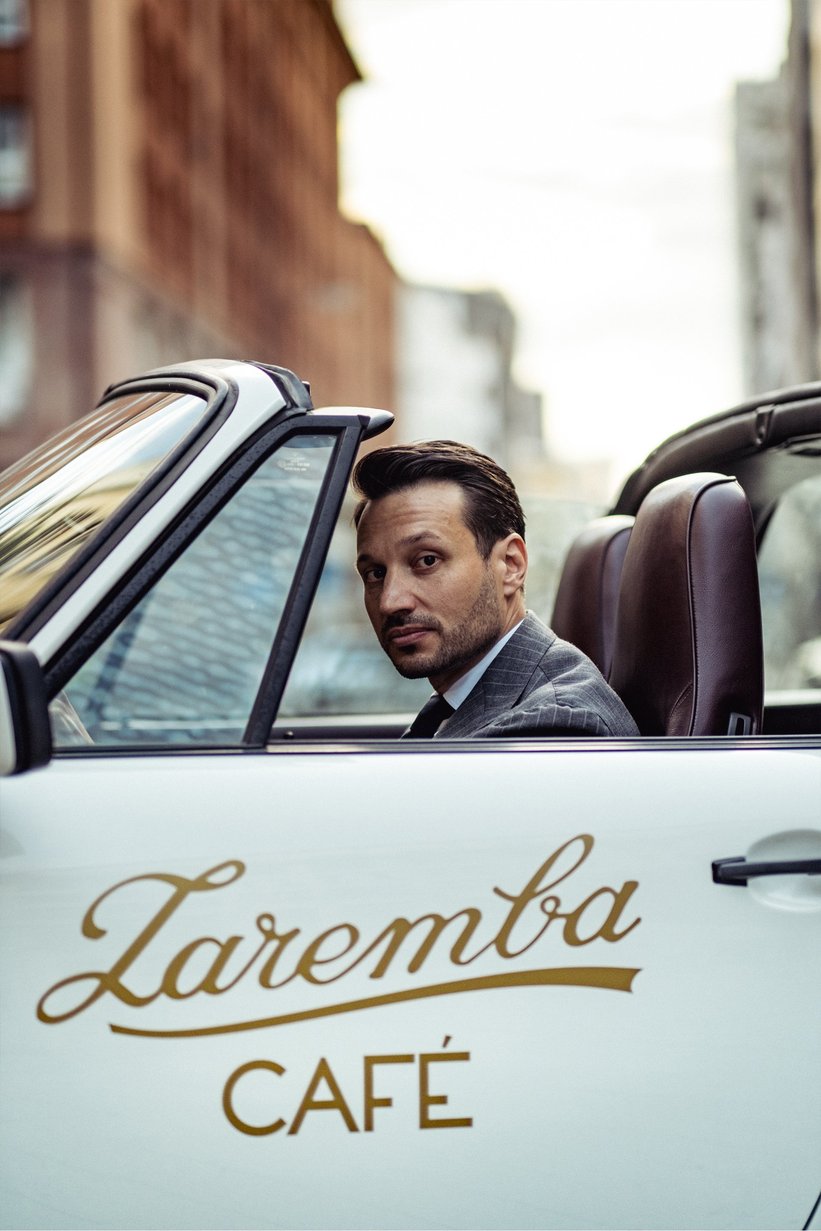
But what about all that rallying? “I drove in cars like my Subaru Impreza S5 Proto, which had a body almost entirely made out of carbon fiber composites, a Lancer Evo X, or the R2 Peugeot 208. With these, I participated in some legendary Polish rallies, including a few starts in the “Barbórka Rally” (*Saint Barbara’s day, patron of miners), with its special stages set in central Warsaw”, Maciej recounts. “The most famous one goes over an XVIII century winding cobblestone viaduct and is extremely tricky, but the atmosphere is festive with tens of thousands of people along the route”. After he had become a father, and the investments he had to make to the business, rallying was no longer sustainable. “But I’m glad I got to do it for such a long time” he says with satisfaction.
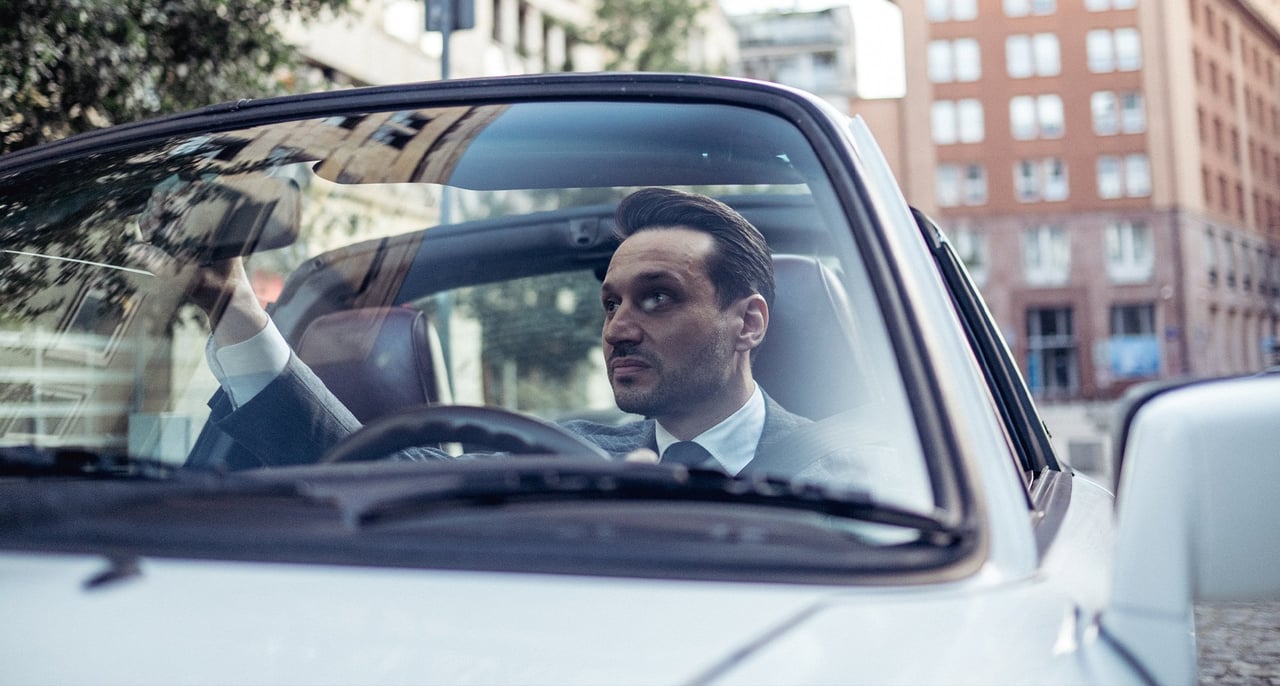

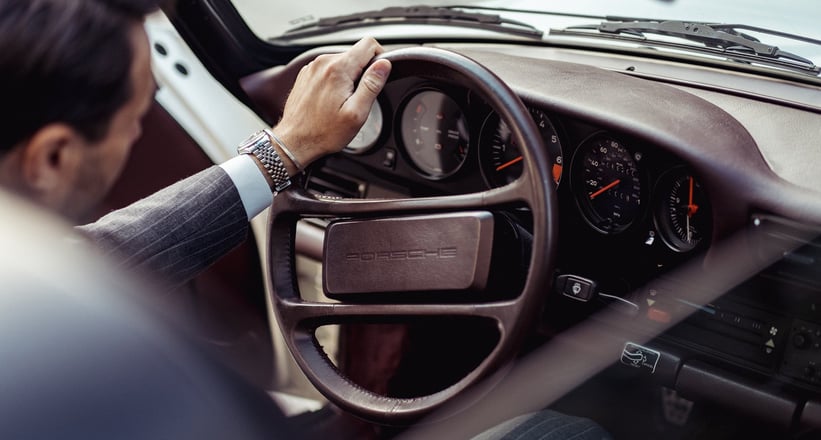
We go through town as if we were on a rally of our own. The metallic clang of the flat six reverberating against the buildings. He dices through traffic, disregarding the rules as we make our way towards the newly built parts of Wola, a district where parts of the Jewish Ghetto once stood.
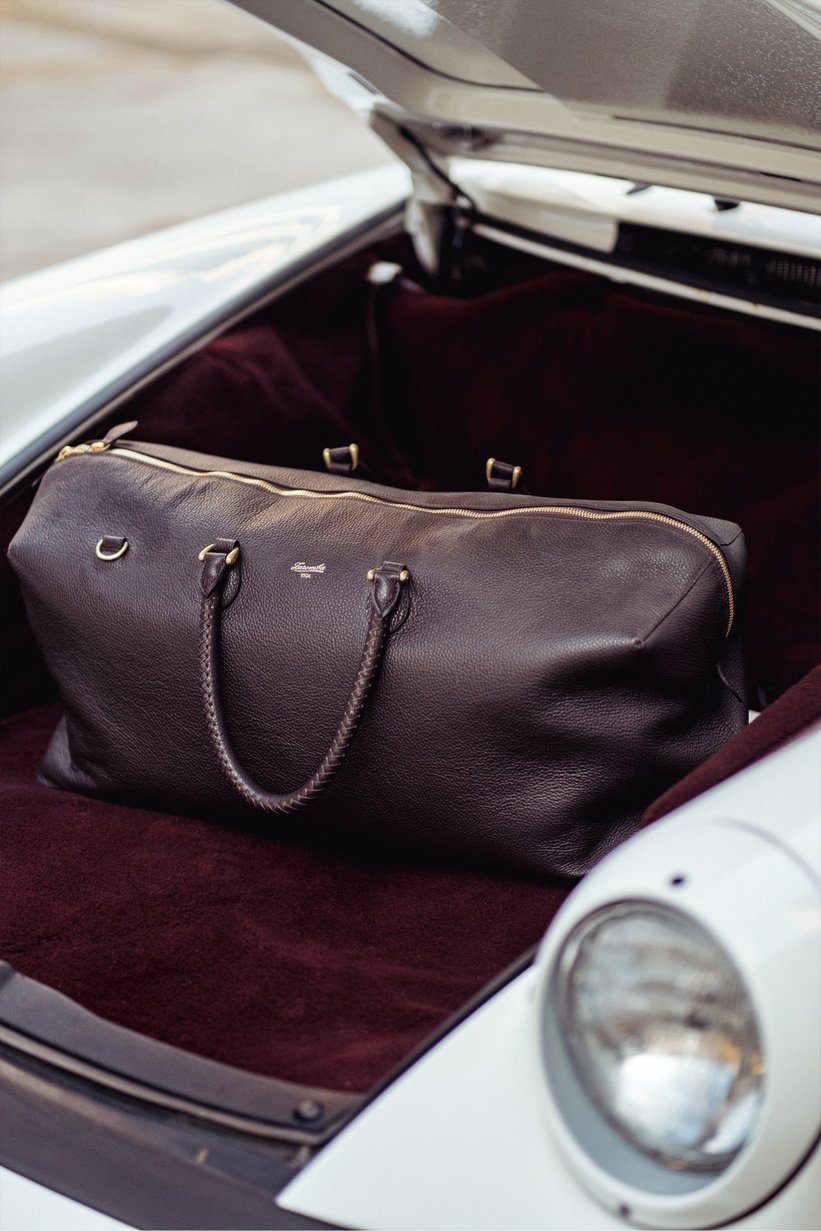
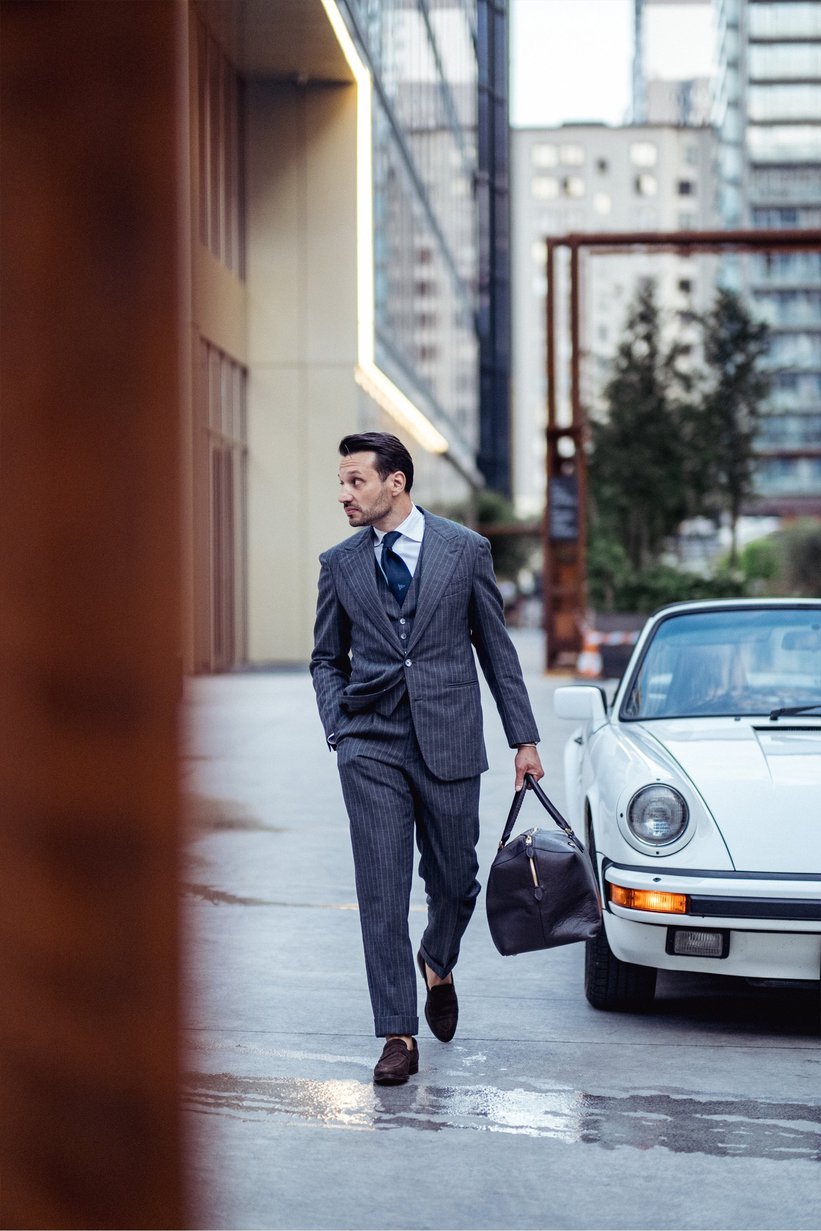
We stop there to shoot one last sequence of images and talk about expanding the Zaremba brand into ready-mades and accessories. After all, the operation has grown and Maciej has now a huge store to fill with stuff – the speedy pace with which he flies through town now also needs to apply to his business. “It is going to be a challenge, how to tackle this without diluting or destroying the brand my ancestors have built. A great responsibility rests on my shoulders”, Maciej admits. “But hey, rallying isn’t only about speed. It’s also about cooperation, avoiding mistakes, and through that process, getting to the finishing line”. As we part ways, and he disappears into the distance, only followed by the sound of an engine revved all the way to the redline – the only way for a sound engineer to drive – I’m filled with a sense of relief. It comes from the knowledge that, in spite of the communist governments efforts, some parts of a bygone, cosmopolitan era survived in this country, against all odds. And that feels like a triumph in itself.
Oh, and I’ll keep you updated on the trouser front.
Photos: Błażej Żuławski







































